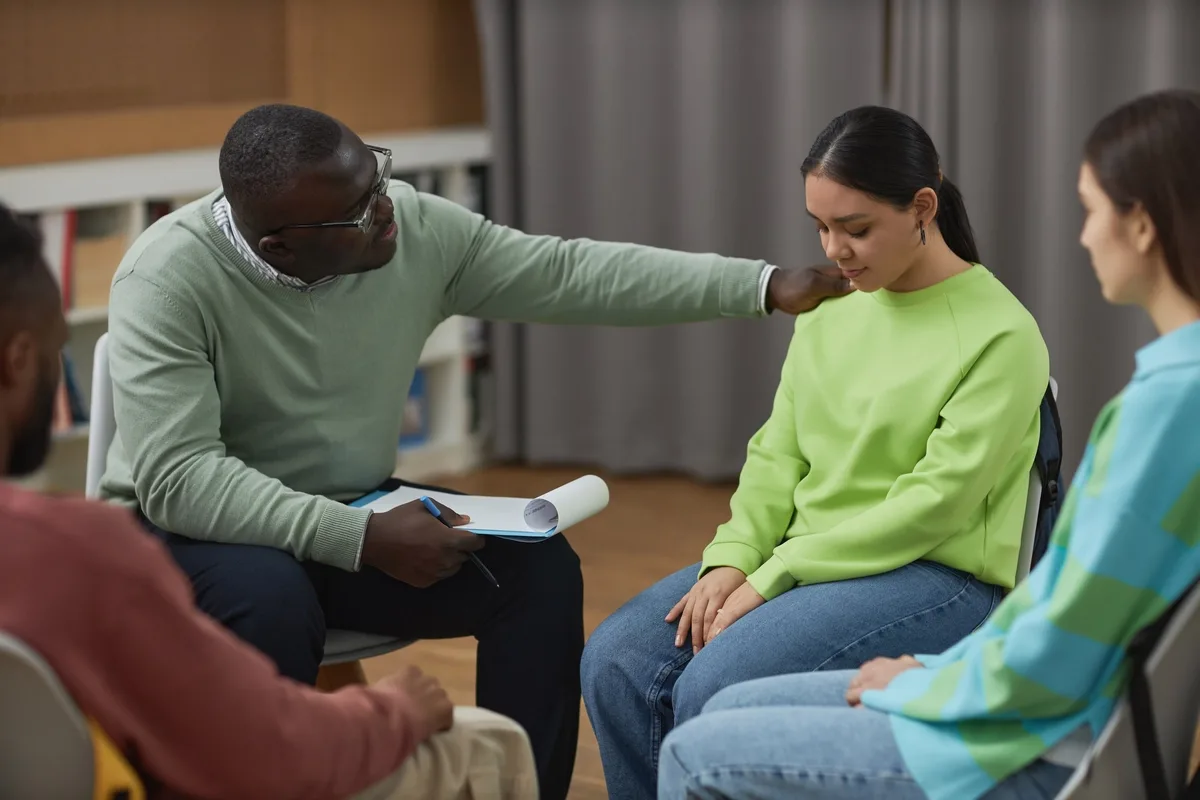24/7 Helpline:
(866) 899-221924/7 Helpline:
(866) 899-2219
Learn more about Klonopin Rehab centers in Bannock County

Other Insurance Options

American Behavioral

UMR

Lucent

PHCS Network

BlueShield

WellPoint

Choice Care Network

Anthem

Private insurance

Carleon

Access to Recovery (ATR) Voucher

UnitedHealth Group

Excellus

BlueCross

Sutter

Sliding scale payment assistance

Regence

United Health Care

AllWell

Magellan

Moonlight Mountain Recovery
Moonlight Mountain Recovery in Pocatello, ID is an accredited drug and alcohol addiction treatment r...

Community Mental Health Services
Community Mental Health Services is a private rehab located in Pocatello, Idaho. Community Mental He...

A New Way Counseling
A New Way Counseling is a private rehab located in Pocatello, Idaho. A New Way Counseling specialize...

Gateway Counseling
Gateway Counseling is a private rehab located in Pocatello, Idaho. Gateway Counseling specializes in...

Portneuf Medical Center – Behavioral Health
Portneuf Medical Center – Behavioral Health is a private rehab located in Pocatello, Idaho. Portneuf...

Road to Recovery
Road to Recovery provides effective, affordable addiction treatment, followed by a life-long continu...

Bannock Youth Foundation – MK Place
MK Place Adolescent Substance Abuse Treatment Center is a private rehab located in Pocatello, ID. MK...

Pacific Rim Consulting
Pacific Rim Consulting is an outpatient rehab facility located in Pocatello, ID. Pacific Rim Consult...

Consumer Care
Consumer Care is a private rehab located in Pocatello, Idaho. Consumer Care specializes in the treat...

Road To Recovery – W. Main Street
Road To Recovery – W. Main Street is a non-profit rehab located in Lava Hot Springs, Idaho. Road To ...

Childrens Supportive Services
Childrens Supportive Services is a private rehab located in Pocatello, Idaho. Childrens Supportive S...

















Behavioral Treatment Center
Behavioral Treatment Center is a private rehab located in Pocatello, Idaho. Behavioral Treatment Cen...

Redford Counseling and Family Services
Redford Counseling and Family Services is a private rehab located in Pocatello, Idaho. Redford Couns...

Mental Wellness Centers
Mental Wellness Centers is a private rehab located in Pocatello, Idaho. Mental Wellness Centers spec...

A to Z Family Services
A to Z Family Services is a private rehab located in Pocatello, ID. A to Z Family Services have an o...

Friendship Club
Friendship Club is a subsidiary of Alcoholics Anonymous (AA)/Narcotics Anonymous (NA) in Pocatello, ...

Bright Tomorrows
Bright Tomorrows is a private rehab located in Pocatello, Idaho. Bright Tomorrows specializes in the...

Road to Recovery
Road to Recovery provides effective, affordable addiction treatment, followed by a life-long continu...

Lighthouse for Recovery
Lighthouse for Recovery is a private rehab located in Pocatello, Idaho. Lighthouse for Recovery spec...

Region VI Mental Health and Welfare Services
Region VI Mental Health and Welfare Services is a public rehab located in Pocatello, Idaho. Region V...

Family Counseling Services
Family Counseling Services is a private rehab located in Pocatello, Idaho. Family Counseling Service...



















































